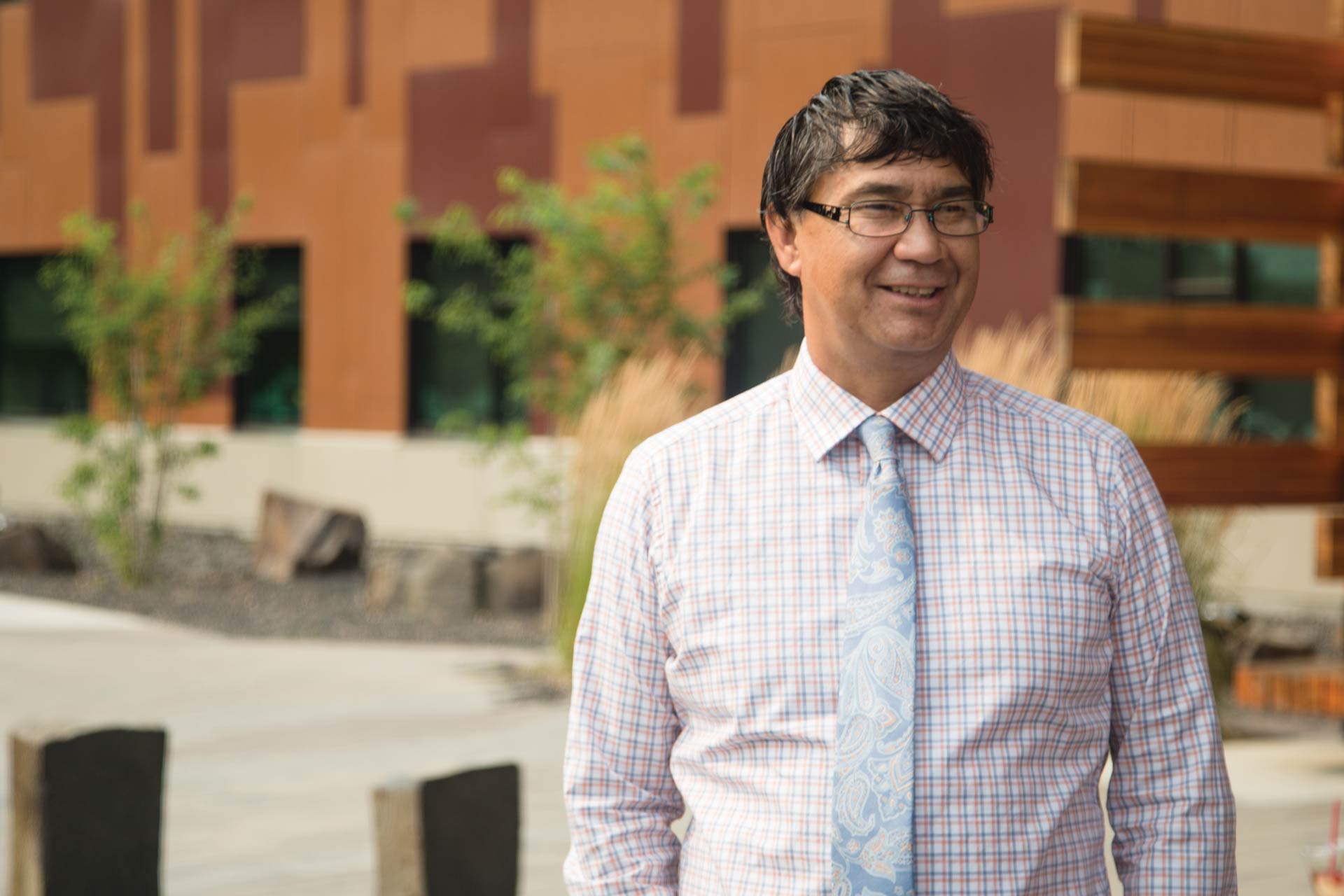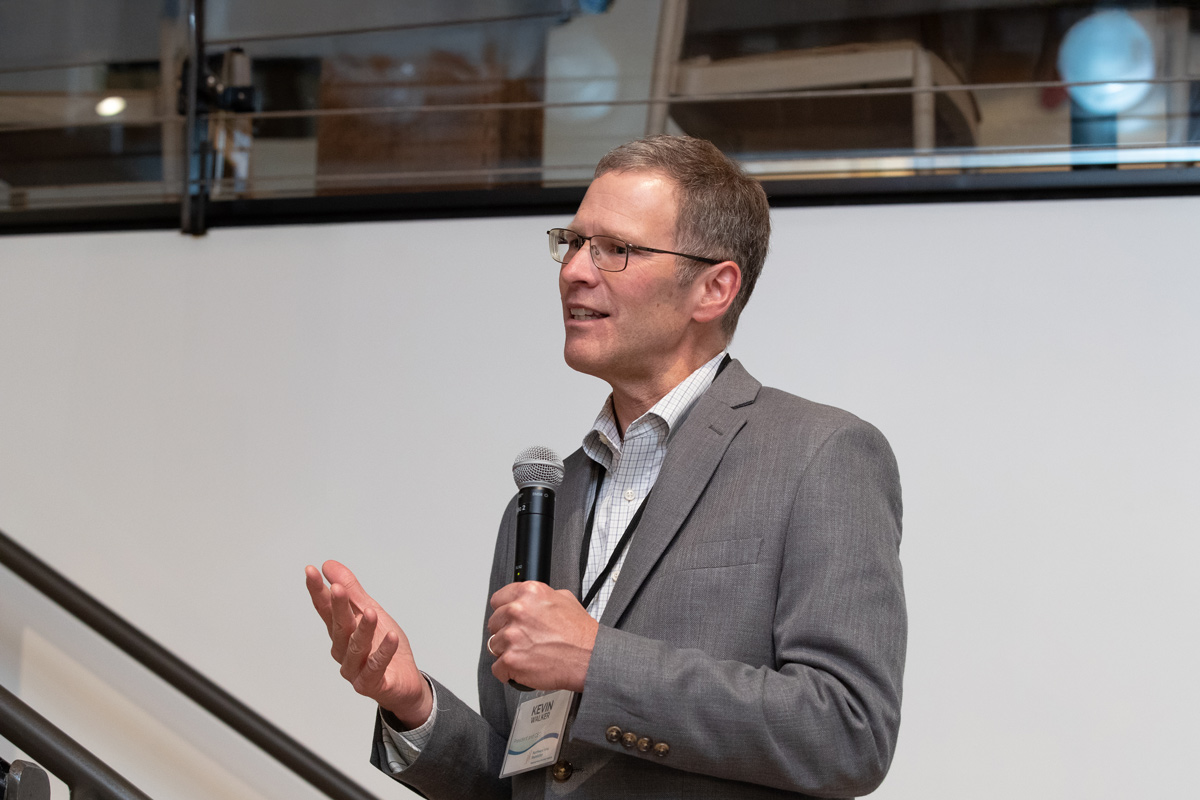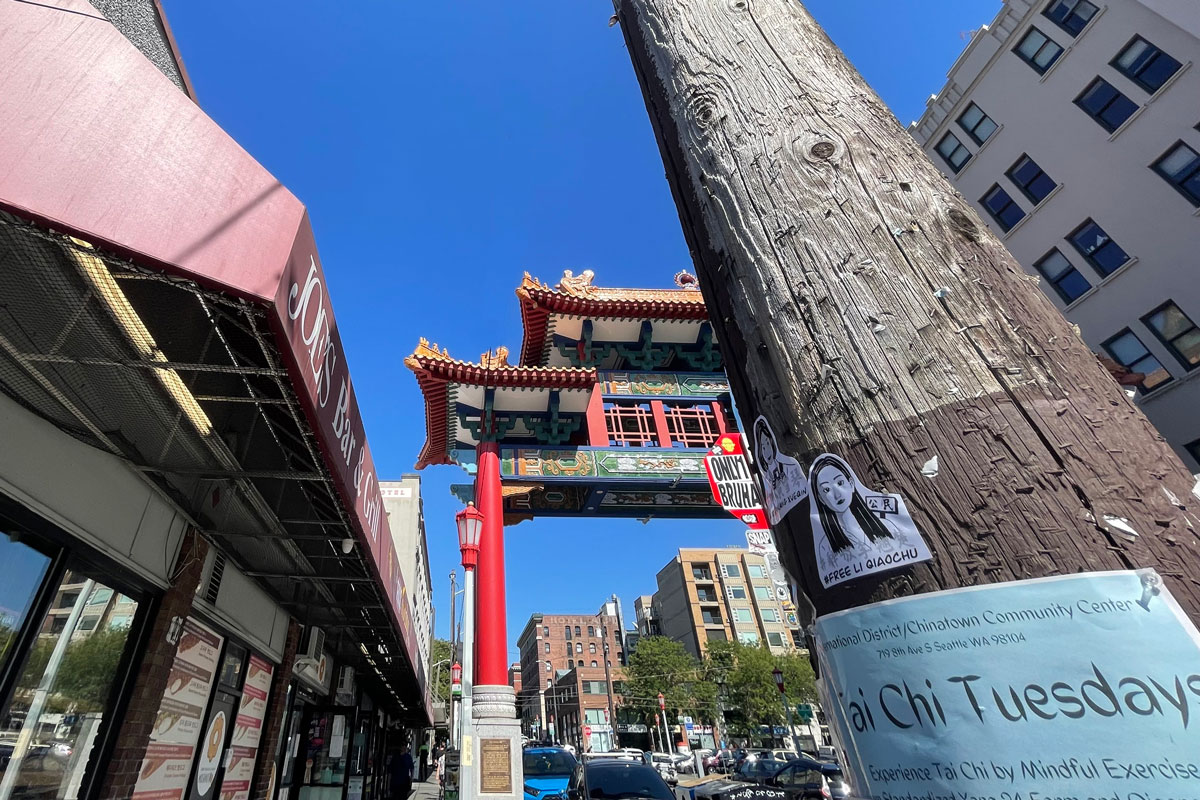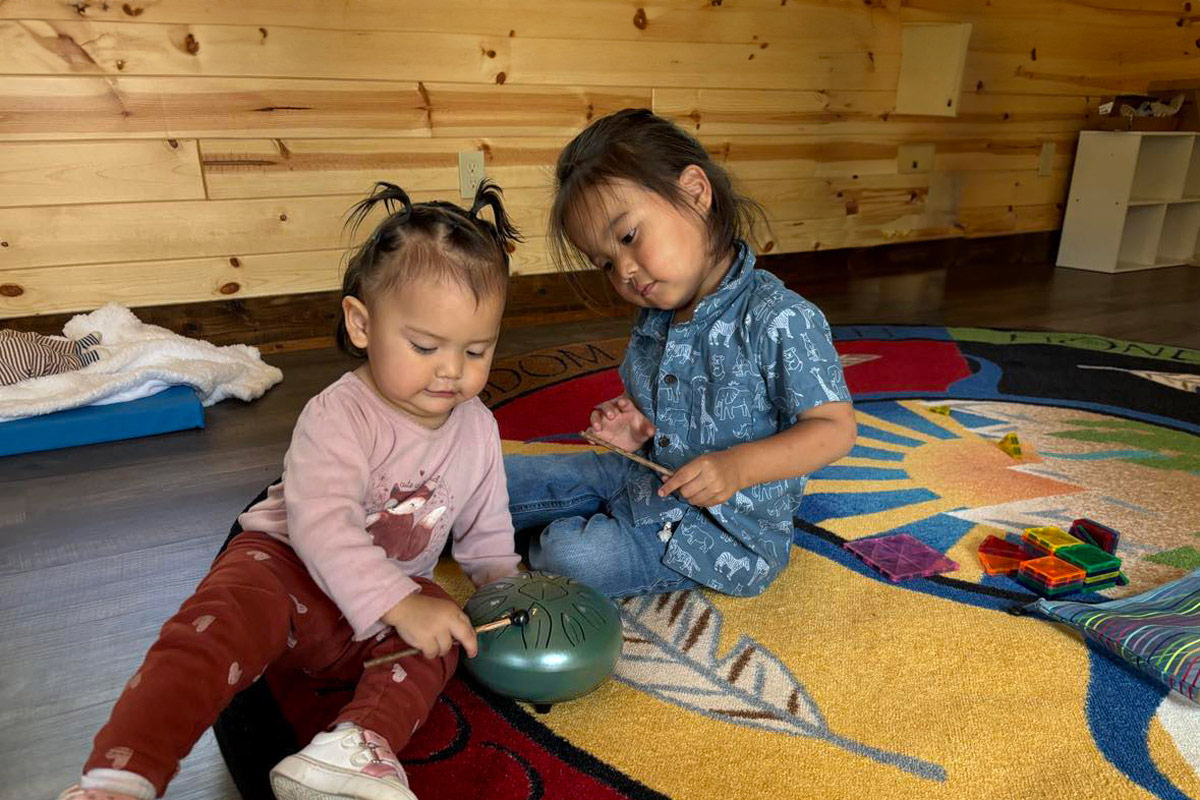By Clay Scott
We like to think that we are the glue that holds things together,” says Ted Piccolo (pictured above), director of Northwest Native Development Fund (NNDF) in Coulee Dam, WA.
“We are the ones who can make connections between individuals and financial institutions and find creative ways to keep those relationships working.”

One of the institutions NNDF has a strong partnership with is Wells Fargo & Company. Connie Smith is program manager for the Wells Fargo Diverse Community Capital Program, a three-year program providing lending capital to community development financial institutions (CDFIs) serving small businesses and entrepreneurs.
“We feel strongly about working with Native CDFIs,” she says. “They are definitely making a difference.”
Creating cultural connections
NNDF is certainly making a difference, providing valuable services to Native communities in eastern Washington. Unemployment is high in those communities, and income relatively low. The communities are spread over an area that is vast and sparsely populated. For NNDF, that poses both financial and logistical challenges.
“The expenditure of time is one of the biggest difficulties for us,” says Piccolo. “Many of the people we serve live in isolated areas, and we often have to drive a couple of hours each way to visit clients.
“For an organization like ours with a small staff, those travel hours become significant. But we embrace it. In Indian Country, people expect you to put in the time. That’s how those personal connections happen.”
Connie Smith agrees. One of the strengths of NNDF, she says, is its intimate knowledge of the culture of the communities it serves.
“The thing about this model is that it’s sustainable. As entrepreneurs gain business knowledge, and as their businesses grow, they can seek funding from more traditional sources. To me, that is a compelling strategy.”
Connie Smith
Program Manager, Wells Fargo Diverse Community Capital Program
“They can tailor their advice and training in a way that is culturally specific. That’s one reason the organization is so effective, and it’s a reason Wells Fargo values this partnership.”
“Working with a large bank was a bit intimidating at first,” says Piccolo. “It was all new to us, and there was a learning curve. Sometimes it seems that every question led to another question. But the folks at Wells were extremely helpful, and very patient.”
Almost a year after NNDF first started the process, the application was approved.
“The thing about this model,” says Smith, “is that it’s sustainable.
“As entrepreneurs gain business knowledge, and as their businesses grow, they can seek funding from more traditional sources. To me, that is a compelling strategy.”
Empowering entrepreneurs
A stone’s throw from the offices of NNDF in Coulee Dam, WA, is an entrepreneur who exemplifies that strategy.

Four years ago, Clarissa Cawston was a full-time teacher with a 3-year-old child of her own. Like many young working parents, she struggled to find affordable day care. When she decided to try and open her own day care business, she was at first daunted by the strict state guidelines, and by the initial financing she would need to launch her business.
NNDF was there to help her with both.
“I’m not sure what I would have done without Ted Piccolo and NNDF,” she says. “They understood the position I was in, and they also believed in my business idea, because they knew as well as I did the need for child care on the reservation.”
Today, Coulee Kids Daycare is thriving, and Cawston has already opened a second location to keep up with the demand.
Meeting community needs
A few miles from Coulee Dam, in the newly constructed Government Center of the Confederated Tribes of the Colville Reservation, customers line up at the Red Willow Café for infused water, smoothies, and a variety of healthy salads.
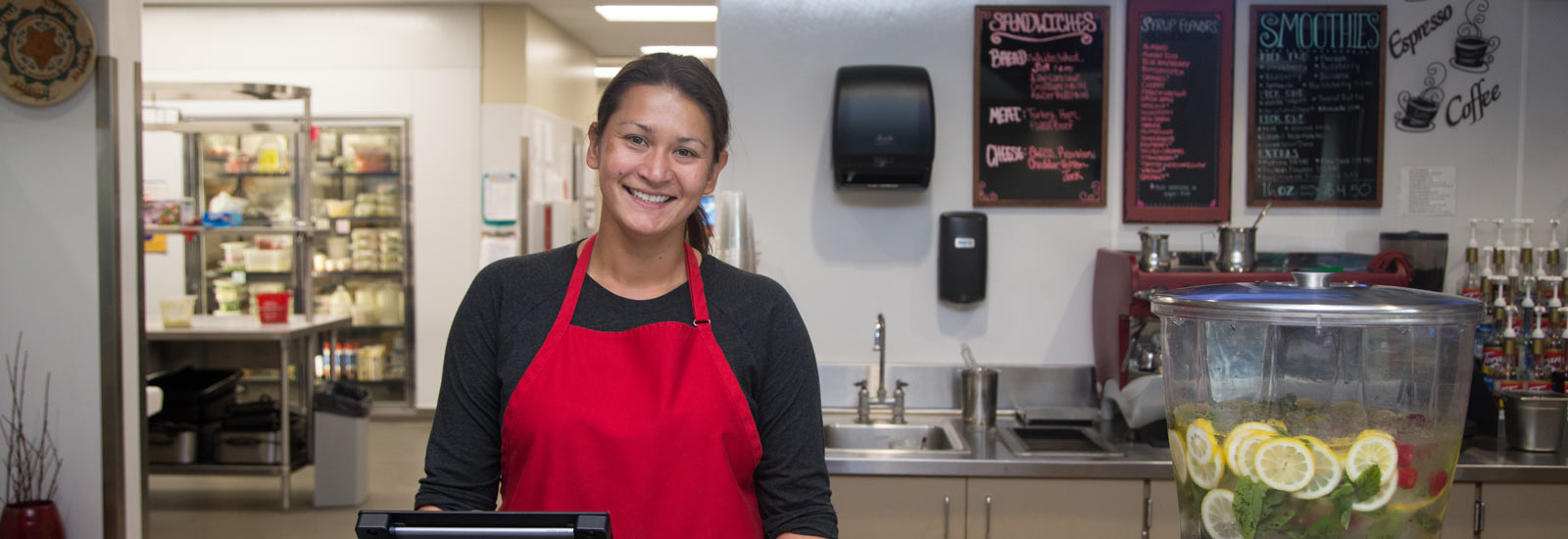
“None of this was available around here before we opened this place,” says Owner Theresa Desautel.
“Nutrition has always been an issue on the Rez. I have regular customers who practically lived on fast food until they started coming here. Now they have at least one healthy meal a day.”
Desautel had no business experience before opening Red Willow. She had worked on road crews for years before deciding she’d rather design roads than build them. She got a degree in engineering technology, and was one of the project engineers who helped build the tribal Government Center.
That’s when the idea came to her to open a café. She immediately approached NNDF.
“In our communities, there’s no shortage of entrepreneurs, and no shortage of creative energy. Sometimes, all you need is the right kind of partnership to help that energy take shape. I like to call us: The little Fund that could.”
Ted Piccolo
Director, Northwest Native Development Fund
“When Theresa shared her concept with us,” says Piccolo, “it really resonated, because it’s exactly in line with our goal of fostering small, Native-owned businesses on the Colville and Spokane reservations. And all of us felt it had a chance to succeed as a business concept and at the same time address a need in our community.”
“Not only did they come through with a loan that made a huge difference at the beginning stages of my business,” Desautel says, “but they answered every question I could come up with, and walked me through every step of the process.”
Her first year and a half in business hasn’t been easy, she says—nothing in the food industry ever is—but Red Willow Café is in the black, and she’s already thinking about her next business idea.
“If I ever expand,” she says, “or open a new place, I think I can do it on my own. NNDF showed me the way, and gave me a boost. Now they can use their resources on the next entrepreneur.”
“In our communities,” says Piccolo, “there’s no shortage of entrepreneurs, and no shortage of creative energy. Sometimes, all you need is the right kind of partnership to help that energy take shape.
“I like to call us: The little Fund that could.”
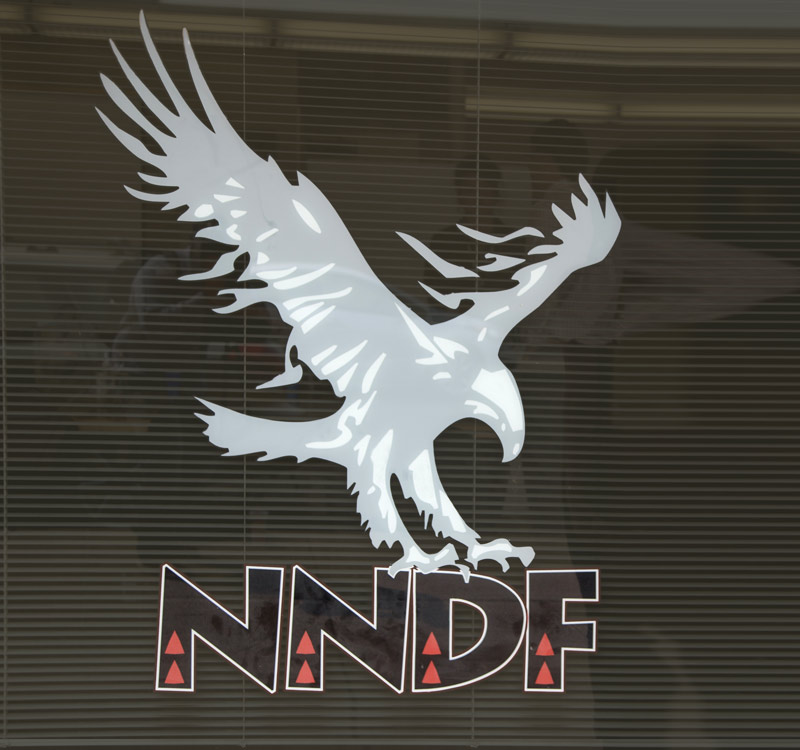
Native CDFIs and Impact
CDFIs are private financial institutions dedicated to delivering responsible, affordable lending for underserved communities.
Native CDFIs are rooted in the cultural and historic context of Native communities and provide services that go beyond lending. They’re engines of change, expanding economic opportunity and opening doors to loans, credit, jobs, and much more.
PHOTOS (from top): Ted Piccolo, Clarissa Cawston, Theresa Desautel; photos by Uzoma Obasi
Tags: Native CDFI

